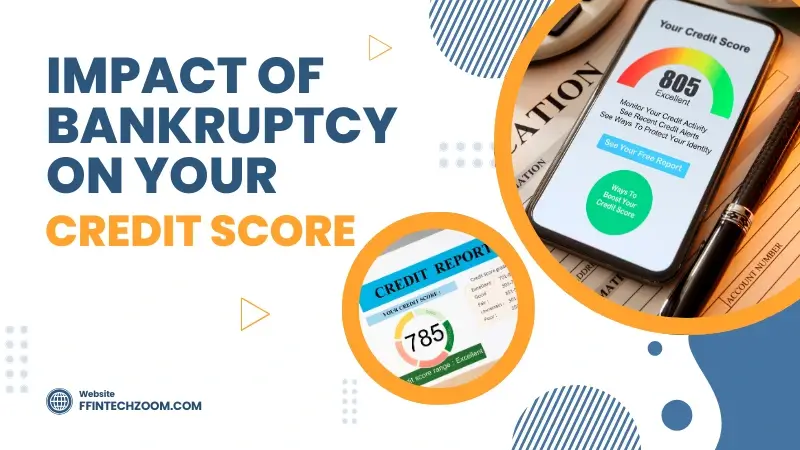The Impact of Bankruptcy on Your Credit Score and How to Rebuild It
Bankruptcy can be a way out from under a crushing load of debt, but it can also leave your credit in shambles. When you file for bankruptcy, you essentially tell the world (and your creditors) that you are unable to meet your financial obligations.

And although this might (and oftentimes is) the best option for an individual’s financial situation, it does come with a few drawbacks. That’s why it’s a good idea to look at the whole bankruptcy picture from top to bottom, before making any final decisions on how you want to proceed regarding your plans. We have also covered Choosing a Sustainable Path Out of Debt on our website.
To that point, we put together this little guide to help you understand what may happen to your credit score when you opt for this route. And for a more detailed assessment of your personal situation, Hines Bankruptcy Law handles Chapter 7 & Chapter 13 law.
Impact of Bankruptcy on Credit Score
Filing for bankruptcy affects your credit score very quickly and very significantly. Your credit score has a base value of 300 points, but it can go as high as 850. Most people score somewhere between those two numbers. Those with a score of 700 or higher are generally viewed favorably by creditors and lenders. A bankruptcy stays on your credit report for a long time, but how long it stays there depends on what kind you filed.
A Chapter 7 bankruptcy can last for a period of up to 10 years. Chapter 13 bankruptcy stays on a person’s credit report for a maximum of 7 years. This is because Chapter 13 bankruptcy involves a repayment plan. During the repayment period, a person is supposed to make payments to a court-appointed trustee, who then pays creditors. Find valuable tips and strategies in our article about Right Income Protection Policy.
Steps to Rebuild Your Credit
Though bankruptcy has a major effect on your credit score, it does not have to be the last act of your financial existence. With discipline and effort, you can re-establish yourself and undo the stigma attached to life after bankruptcy. Enhance your understanding by reading our in-depth post on Accounting Services in China.
Hines Bankruptcy Law handles Chapter 7 & Chapter 13 law, and courtesy of them, here are a few critical financial habits to develop to help repair your credit:
- Examine your credit report regularly and carefully
- Set a budget and cultivate positive financial practices
- Seek a secured credit card
- Pay all your bills on time
- Think about a loan that builds credit
- Exercise caution with new credit
- Keep a watchful eye on your credit score
Ultimately, creditors see bankruptcy as a warning sign; a sign of instability and an increased risk of default. This perception can make it hard to get new credit lines, rent an apartment, or even secure certain jobs. But with time and the right kind of financial management, the impact of bankruptcy can fade tremendously.
Don’t Guess When It Comes to Your Financial Future; Hines Bankruptcy Law Handles Chapter 7 & Chapter 13 Law
The effect of bankruptcy on your credit score can be significant, but the result is usually not permanent. After a while, you can perform a few simple techniques that can raise your score again and, in many instances, you can achieve a score even higher than the one you had before you filed for bankruptcy. You can visit Fintechzoom.com for more trending posts.



